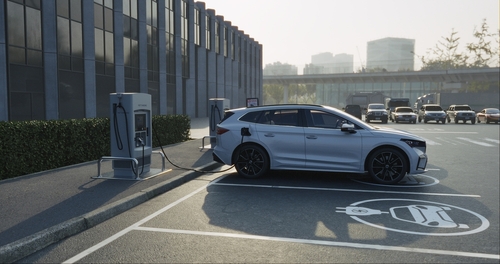Electric vehicles (EVs) are now proving to be significantly more expensive to run than their gasoline counterparts in the United Kingdom, with new data revealing that EVs cost up to twice as much per mile to operate. This revelation comes at a critical time when the UK is pushing for a transition to electric cars as part of its broader environmental strategy.
According to data from the UK app ZapMap, driving an electric vehicle can cost over 24p per mile when using rapid chargers. In contrast, running a diesel-powered vehicle costs around 12.5p per mile, and a gasoline car averages around 14.5p per mile. The figures are stark, particularly for drivers who rely on public charging stations, where electricity prices have surged due to rising energy costs .
Recently released dashcam footage of the car park fire in Incheon, South Korea where an Electric Vehicle (Mercedes-Benz EQE) caught fire.
The incident hospitalised 23 people and damaged 140 vehicles, it has since came go light that the fire sprinkler system was disabled at the… pic.twitter.com/Q3omjIbZyB
— The Secret Firefighter UK (@TheSecretFF999) September 18, 2024
One of the most significant factors driving up the cost of operating an EV is the price of rapid charging. A typical trip from London to Penzance, for instance, would set back an EV driver £148 if they rely on rapid chargers. Comparatively, a diesel car would cost just £77 for the same journey, while a gasoline car would cost around £89. The cost gap is even more pronounced for longer trips or for those who cannot charge their vehicles at home.
The situation is compounded by the fact that electricity prices in the UK have continued to rise, even as wholesale electricity costs have dropped. For instance, the price of using public rapid chargers has increased by 5% over the past year, despite a 30% decrease in wholesale electricity prices. This price hike adds another layer of complexity to the push for widespread EV adoption, as affordability becomes a growing concern.
Chinese electric vehicles could be 'weaponized' and should be banned from government use, report warns
“When an EV gets live traffic information from smart traffic lights, looks up data on the nearest charging point, or receives a software update, it does so through such CIMs.… pic.twitter.com/OMwAAUm4Xy
— Glen Gilmore #CES2025 #MWC2025 (@GlenGilmore) September 21, 2024
Public chargers, particularly rapid and ultra-rapid charging stations, are now a major source of cost for EV drivers. These charging stations have seen a 40% increase in availability across the UK, with over 12,500 now in operation. However, this expansion has not translated into savings for drivers. The high cost of charging, especially for those who cannot charge at home, has sparked concern over whether EVs can remain a viable option for long-distance travel .
The high cost of insurance for EVs is another growing issue. Recent reports indicate that insuring an electric vehicle can cost as much as double the insurance premiums for gasoline cars. EV owners in the UK face average insurance premiums of £1,344, compared to much lower costs for conventional vehicles. This sharp increase is attributed to higher repair costs and the limited availability of qualified mechanics to service EVs.
While the UK government has committed to banning the sale of new gasoline and diesel cars by 2030, these rising costs raise questions about the future of the EV market. In 2024, EVs made up just 17.2% of new car registrations, a slight drop from previous years. The slower growth in sales reflects a broader hesitation among consumers as the cost of owning and operating EVs becomes less competitive.
Moreover, the economic realities of EV ownership are not aligning with the long-term environmental goals. EVs are intended to play a pivotal role in reducing carbon emissions and tackling climate change. However, for many drivers, the financial burden of running an electric vehicle is proving to be a significant barrier.




